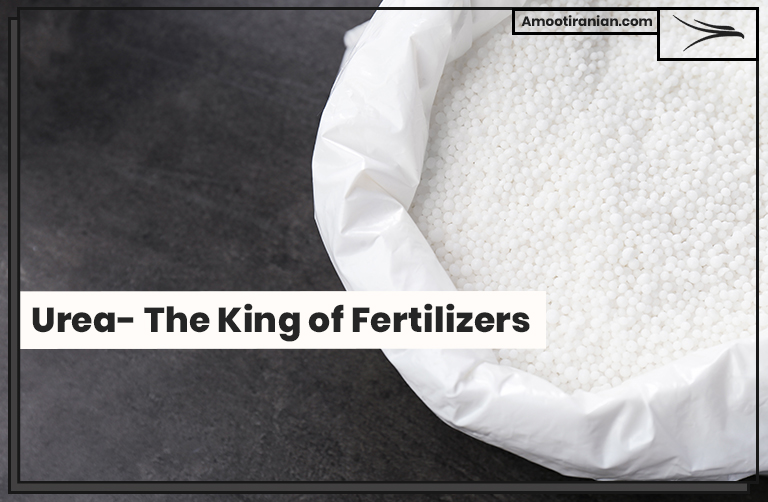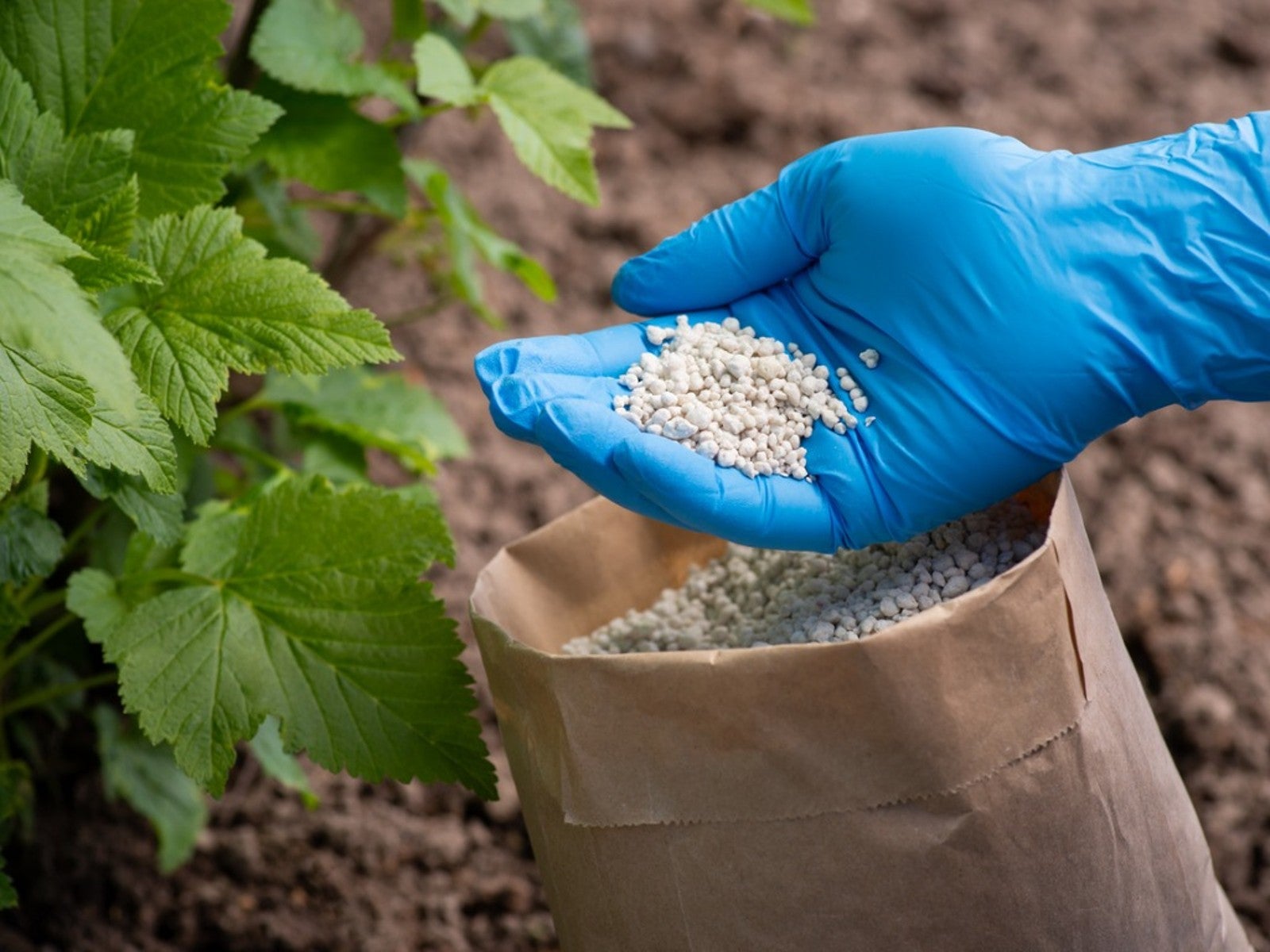What is Better Than Fertilizer? Discover Natural Alternatives for Healthy Plants

In the quest for vibrant, healthy plants, many gardeners often rely on synthetic fertilizers to boost growth and productivity. However, the increasing awareness of environmental sustainability and the potential downsides of chemical inputs have sparked interest in natural alternatives. This article delves into the world of organic amendments, exploring various natural options that not only nourish your plants but also enrich the soil and promote a balanced ecosystem. From compost and mulches to plant-based additives, discover how these eco-friendly choices can lead to thriving gardens while supporting environmental health. Embrace a greener approach to gardening and watch your plants flourish!
What Alternatives to Fertilizer Can Enhance Plant Growth?
While traditional fertilizers play a pivotal role in supplying essential nutrients to plants, there are several natural alternatives that can be even more beneficial for soil health and plant growth. Organic matter such as compost and manure not only enriches the soil with nutrients but also improves its structure, enabling better water retention and aeration. Additionally, practices like cover cropping and using mulch can help suppress weeds, provide habitat for beneficial organisms, and enhance the microbiome of the soil. By focusing on these holistic approaches, gardeners can foster a more sustainable environment that supports healthy plants without the reliance on chemical fertilizers.
Compost: A Nutrient-Rich Soil Amendment
Composting is one of the best practices for creating a rich source of nutrients in your garden. By decomposing organic waste such as kitchen scraps, yard clippings, and leaves, compost provides a balanced mix of nitrogen, phosphorus, and potassium, essential for plant growth. Furthermore, it enhances the soil's microbial activity and structure, leading to a more resilient garden ecosystem. The gradual release of nutrients from compost also prevents the over-fertilization issues associated with synthetic fertilizers, making it a preferred choice among organic gardeners.
Manure: Nature's Fertilizer
Animal manure is another excellent alternative to chemical fertilizers, as it is packed with nutrients that can significantly improve soil fertility. When properly composted, manure releases nutrients slowly and enhances the organic matter content in the soil. This not only nourishes plants but also helps in improving soil texture, water retention, and aeration. It's vital, however, to use well-treated manure to avoid the risks of pathogens or nutrient burn in plants.
Cover Crops: Enhancing Soil Health
Cover crops, such as clover or vetch, are grown primarily to improve soil health rather than for harvest. These plants fix nitrogen in the soil, enhance soil structure, and prevent erosion during off-seasons. By planting cover crops, gardeners can boost soil fertility and suppress weeds naturally, leading to healthier gardens. When tilled into the soil, they decompose and return nutrients, offering a sustainable alternative to conventional fertilizers.
Mulching: Suppressing Weeds and Retaining Moisture
Mulching involves spreading organic materials, such as wood chips, straw, or grass clippings, over the soil surface. This practice provides numerous benefits, including weed suppression, moisture retention, and increased soil temperature stability. It also contributes organic matter as it decomposes, improving soil texture and nutrient availability. By utilizing mulch, gardeners can create an environment conducive to plant growth while minimizing the need for chemical fertilizers.
Natural Soil Amendments: Rock Phosphate and Green Manures
Natural soil amendments like rock phosphate provide a slow-release source of phosphorus, crucial for root development and flowering. Green manures, which are crops specifically grown to be tilled back into the soil, add vital nutrients and improve soil fertility. Both options can work synergistically as alternative methods to achieve excellent soil health without relying solely on chemical fertilizers. They align with sustainable gardening practices, promoting long-term soil vitality.
| Alternative | Benefits |
|---|---|
| Compost | Enhances soil structure, provides balanced nutrients, supports microbial activity. |
| Manure | Rich in nutrients, improves organic matter, prevents soil erosion. |
| Cover Crops | Fix nitrogen, suppress weeds, enhance soil health. |
| Mulching | Suppresses weeds, retains moisture, adds organic matter. |
| Natural Amendments | Slow-release nutrients, improves soil fertility, aligns with sustainable practices. |
What is the king of fertilizer?

The term king of fertilizer often refers to urea, which is the most widely used nitrogen fertilizer in the world. Urea is favored for its high nitrogen content (typically around 46% nitrogen), which is essential for plant growth. It is a cost-effective option that decomposes in the soil to release nitrogen, promoting vigorous growth and high yields in crops.
The Importance of Nitrogen in Agriculture
Nitrogen is a critical nutrient for plants, as it plays a vital role in various physiological functions. It is a major component of amino acids, proteins, and nucleic acids, which are essential for plant growth and development. Without sufficient nitrogen, plants can exhibit stunted growth, poor yields, and yellowing of leaves. The benefits of nitrogen in agriculture include:
- Enhanced Growth: Nitrogen stimulates vegetative growth and increases leaf area.
- Improved Yield: Adequate nitrogen levels correlate with higher crop output.
- Better Quality: Crops with sufficient nitrogen often have improved nutritional content.
Why Urea is Popular
Urea's popularity as the king of fertilizers can be attributed to several factors that make it an ideal choice for farmers and agriculturalists. Its production process is relatively simple and efficient, making it widely available and affordable. The key reasons for its popularity include:
- High Nitrogen Content: With 46% nitrogen, urea provides more nutrients per kilogram than many other fertilizers.
- Easily Applicable: It can be applied in various methods: broadcasting, side-dressing, or incorporated into the soil.
- Cost-Effectiveness: Urea is often cheaper than alternatives, making it accessible for farmers worldwide.
Environmental Impact of Urea
While urea has many benefits, it also poses environmental challenges if not managed properly. The application of urea can lead to the release of nitrous oxide, a potent greenhouse gas, into the atmosphere. Moreover, if applied in excess, it can contribute to soil and water pollution. Key environmental concerns associated with urea include:
- Soil Acidification: Over-application can lower soil pH, affecting nutrient availability.
- Water Pollution: Runoff from fields can lead to eutrophication in water bodies, harming aquatic ecosystems.
- Greenhouse Gas Emissions: Inefficient use of urea can increase nitrous oxide emissions.
Alternative Fertilizers to Urea
Despite its dominance, several alternatives to urea exist in the market. These fertilizers may offer similar benefits with potentially less environmental impact. Some notable alternatives include:
- Ammonium Nitrate: Offers nitrogen in both ammonium and nitrate forms, promoting rapid plant uptake.
- Calcium Nitrate: Supplies both calcium and nitrogen, beneficial for specific crops like tomatoes and peppers.
- Organic Compost: Provides nitrogen along with other nutrients and improves soil health over time.
Best Practices for Using Urea
To maximize the effectiveness of urea and minimize environmental impacts, it is essential to follow best practices when using this fertilizer. Proper management techniques can lead to sustainable agricultural practices. Important practices include:
- Right Timing: Apply urea when plants are actively growing to ensure efficient uptake.
- Correct Application Rate: Conduct soil tests to determine the right amount of urea needed.
- Incorporation into Soil: Incorporating urea into the soil can reduce nitrogen loss and increase availability to plants.
What is the best substitute for fertilizer?

The best substitute for fertilizer depends on the specific needs of the plants and the type of soil. Natural alternatives can provide essential nutrients without the potential negative effects of chemical fertilizers. Here are some of the most effective substitutes:
Compost
Compost is an excellent substitute for chemical fertilizers. It is made from decomposed organic matter, which enriches the soil with essential nutrients while improving soil structure and water retention.
- Nutrient-Rich: Compost contains a balanced mix of nitrogen, phosphorus, and potassium.
- Soil Health: It improves soil structure, aeration, and water-holding capacity.
- Microbial Activity: Compost encourages the growth of beneficial microorganisms that enhance nutrient availability.
Bone Meal
Bone meal is a natural source of phosphorus and calcium, vital for plant growth. It is made from ground bones and is particularly beneficial for flowering plants and root development.
- Phosphorus Source: Bone meal promotes root growth and flowering.
- Slow Release: Nutrients are released slowly, which helps prevent nutrient burn.
- Soil pH: It can help balance soil pH, enhancing overall soil fertility.
Green Manure
Green manure refers to cover crops that are grown primarily to be tilled back into the soil. These plants improve soil fertility by fixing nitrogen and adding organic matter.
- Nitrogen Fixation: Leguminous plants such as clover and vetch enrich the soil with nitrogen.
- Organic Matter: Incorporating green manure increases soil organic content.
- Weed Suppression: They can also suppress weed growth and prevent soil erosion.
Wood Ash
Wood ash is another useful substitute, providing potassium and other trace elements. It is an eco-friendly option that can improve soil pH and overall fertility.
- Potassium Source: Wood ash is rich in potassium, essential for flowering and fruiting.
- Soil pH Adjustment: It can help raise soil pH if the soil is too acidic.
- Trace Elements: Contains essential micronutrients like calcium, magnesium, and phosphorus.
Fish Emulsion
Fish emulsion is a liquid fertilizer produced from fish by-products. It is high in nitrogen and promotes healthy plant growth.
- Quick Nutrient Availability: Fish emulsion provides nutrients that are quickly available to plants.
- Organic Option: It's a sustainable alternative to synthetic fertilizers.
- Microbial Support: Fish emulsion enhances soil microbial activity, supporting plant health.
What is an alternative to fertilizer?

An alternative to fertilizer is the use of organic matter, which includes various natural materials that can improve soil health and enhance plant growth without the synthetic chemicals present in traditional fertilizers. Organic matter can enrich the soil, improve its structure, and provide a more sustainable approach to agriculture. Some effective forms of organic matter include compost, manure, and cover crops. These materials not only provide essential nutrients to plants but also promote microbial activity in the soil, which is crucial for nutrient availability.
Understanding Organic Matter
Organic matter refers to decomposed plant and animal materials that enrich soil. It's critical for maintaining soil fertility and boosting biodiversity. By adding organic matter, we improve the soil's ability to retain moisture and nutrients, thereby benefiting plant growth. Key types of organic matter include:
- Compost: Decomposed organic material that provides a balanced nutrient profile.
- Animal manure: Nutrient-rich waste from livestock that enhances soil nutrient levels.
- Green manure: Cover crops planted to be tilled back into the soil for nutrient enrichment.
Using Cover Crops
Cover crops, like clover or rye, are planted during the off-season to enhance soil quality. These plants prevent erosion, suppress weeds, and ultimately add organic matter back into the soil when they decompose. Utilizing cover crops serves multiple purposes:
- Soil structure improvement: Their root systems help break up compacted soil.
- Weed suppression: They outcompete weeds for resources, reducing the need for herbicides.
- Nitrogen fixation: Some cover crops can convert atmospheric nitrogen into a usable form for plants.
Mulching Techniques
Mulching involves covering the soil with organic materials such as wood chips, straw, or grass clippings. This practice not only conserves moisture but also adds nutrients as the mulch decomposes. Benefits of mulching include:
- Weed control: A protective layer limits weed growth by blocking sunlight.
- Moisture retention: Reduces evaporation from the soil surface, maintaining humidity levels.
- Soil temperature regulation: Insulates the soil, protecting plant roots from extreme temperatures.
Utilizing Biochar
Biochar is a charcoal-like substance created from organic materials through pyrolysis. It improves soil fertility by retaining nutrients and enhancing microbial activity. The key advantages of using biochar are:
- Nutrient retention: It helps hold nutrients in the soil, making them more available to plants.
- Soil aeration: Its porous structure improves soil aeration and drainage.
- Carbon sequestration: Biochar can store carbon in the soil for extended periods, helping mitigate climate change.
Implementing Crop Rotation
Crop rotation involves alternating the cultivation of different crops in the same area across seasons. This practice helps prevent nutrient depletion and pest buildup while enhancing soil structure. Key reasons for implementing crop rotation are:
- Diverse nutrient requirements: Different plants have unique nutrient needs, balancing soil fertility.
- Pest management: Rotating crops disrupts the life cycles of pests and diseases.
- Improved soil health: Various root structures help enhance soil structure and organic matter content.
What is a better fertilizer?

The effectiveness of a fertilizer can vary depending on various factors, including the specific needs of the plants being grown, soil conditions, and the environmental factors at play. Generally, fertilizers can be categorized as either synthetic (chemical) or organic. Each type has its unique benefits and drawbacks:
- Synthetic fertilizers are manufactured chemicals that provide essential nutrients quickly to plants. They are often high in specific nutrients such as nitrogen (N), phosphorus (P), and potassium (K), making them effective for rapid plant growth.
- Organic fertilizers, on the other hand, come from natural sources like compost, manure, or bone meal. They improve soil structure and increase microbial activity, making nutrients available slowly over time and improving long-term soil health.
The choice of whether synthetic or organic fertilizers is better depends on the specific gardening or farming goals and practices.
Understanding Synthetic Fertilizers
Synthetic fertilizers are produced through chemical processes and typically contain higher concentrations of nutrients.
- Quick Nutrient Availability: Synthetic fertilizers are designed to dissolve quickly in water, making nutrients immediately available to plants.
- Targeted Nutrient Ratios: They can be formulated to deliver precise N-P-K ratios to meet specific plant requirements.
- Cost-Effective: Often more affordable for large-scale agricultural applications compared to organic options.
Exploring Organic Fertilizers
Organic fertilizers derive from natural materials and contribute to sustainable farming practices.
- Soil Health Improvement: They enhance soil structure, boost microbial activity, and increase long-term sustainability.
- Slow Nutrient Release: Nutrients are released over time, reducing the risk of nutrient leaching and promoting steady plant growth.
- Environmental Benefits: Organic options are usually better for the environment as they reduce chemical runoff and pollution.
Comparing Nutrient Efficiency
When evaluating nutrient efficiency, it’s essential to consider how quickly a plant can utilize the offered nutrients.
- Instant Gratification: Synthetic fertilizers provide immediate results, especially for nutrient-demanding plants.
- Long-Term Nutrient Management: Organic fertilizers support a more sustainable approach that can lead to healthier plants in the long run.
- Crop Rotation and Variety: Utilizing both types in a planned manner can maximize crop yields and health.
Environmental Impact of Fertilizers
The environmental implications of using fertilizers are crucial for sustainable agriculture.
- Runoff Issues: Excess synthetic fertilizers can lead to nutrient runoff, causing water pollution and harmful algal blooms.
- Carbon Footprint: The production of synthetic fertilizers often has a higher carbon footprint compared to organic options.
- Sustainability Practices: Organic fertilizers are often part of practices that promote biodiversity and ecosystem health.
Cost Considerations for Fertilizers
Cost is always a factor when choosing fertilizers, especially in large-scale operations.
- Initial Investment: Synthetic fertilizers might be cheaper upfront, leading to faster returns on investment.
- Long-Term Savings: Organic fertilizers may require a higher initial investment but contribute to soil health and reduce long-term costs.
- Market Demand: Crops grown with organic fertilizers often fetch a higher price in markets, increasing overall profitability.
Questions from Our Readers
What are some natural alternatives to fertilizer?
Many gardeners seek natural alternatives to synthetic fertilizers, such as compost, manure, and bone meal. These options not only enrich the soil but also contribute to a more sustainable growing environment by improving soil structure and providing essential nutrients over time.
How do cover crops benefit soil health compared to fertilizers?
Cover crops are a fantastic way to enhance soil health beyond what fertilizers can offer. They prevent soil erosion, increase organic matter, and can fix nitrogen in the soil, making them a proactive approach to improving soil fertility while reducing the need for chemical inputs.
Can using mulch improve plant growth better than fertilizer?
Yes, applying mulch can significantly improve plant growth and often surpasses the benefits of fertilizer. Mulch helps retain soil moisture, suppress weeds, and gradually adds nutrients to the soil as it breaks down, creating an ideal environment for plants to thrive.
What role do earthworms play in enhancing soil health without fertilizers?
Earthworms are vital for promoting soil health and can enhance its fertility without the need for fertilizers. Their natural tunneling aerates the soil, improves drainage, and their waste products, known as vermicompost, are rich in nutrients, helping plants grow stronger and healthier.

If you want to read more articles like What is Better Than Fertilizer? Discover Natural Alternatives for Healthy Plants, we recommend you check out our Fertilier category.
Leave a Reply